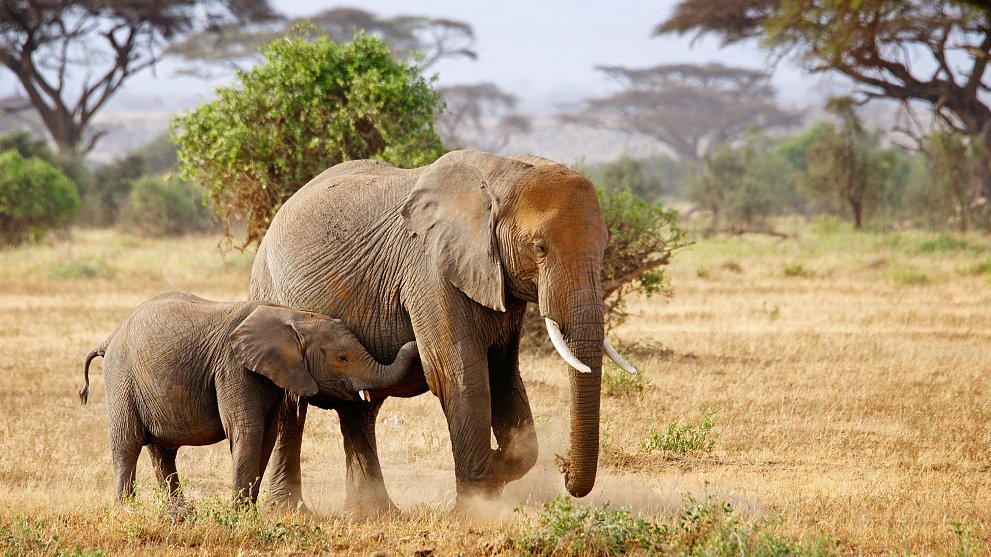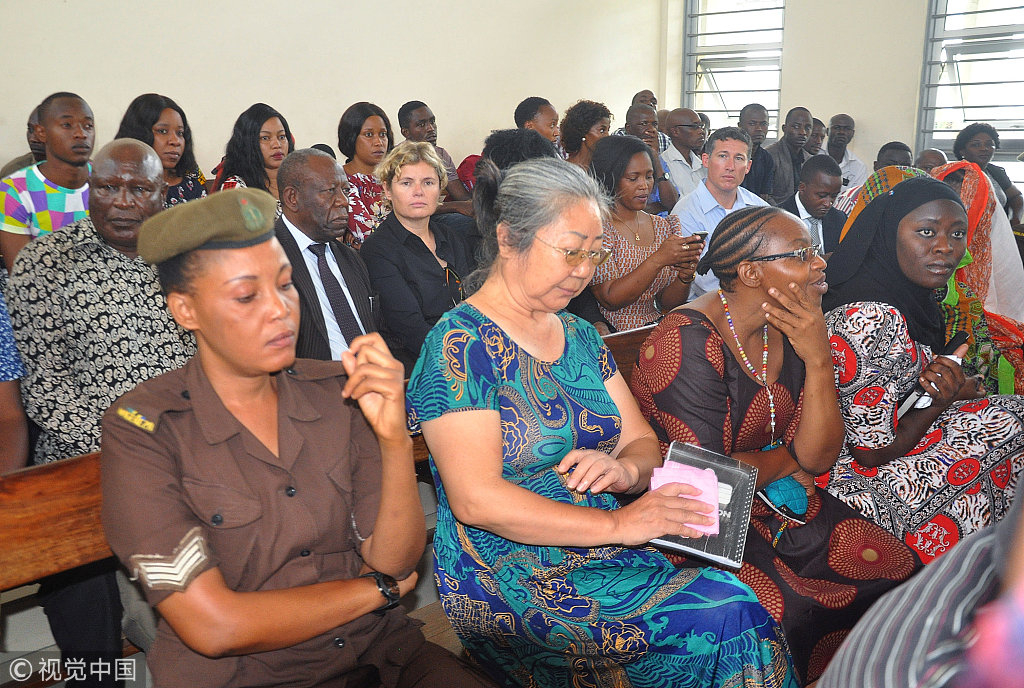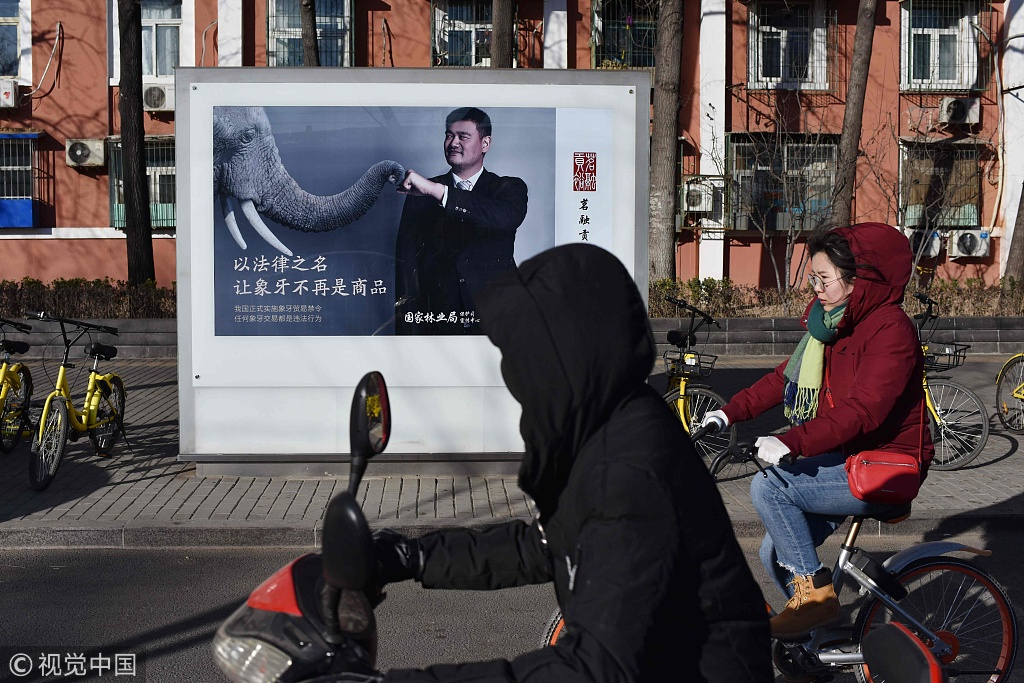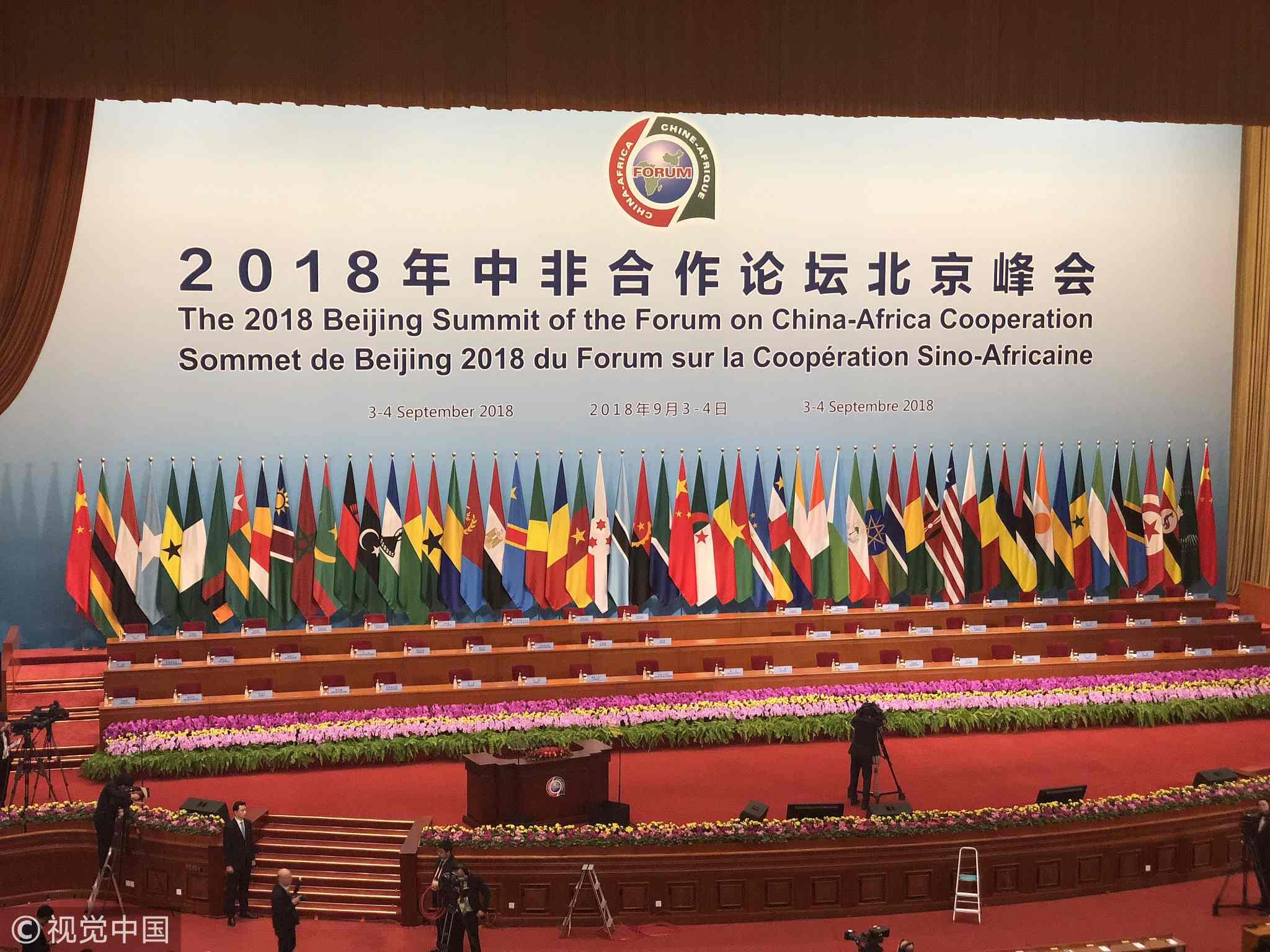
Opinion
13:18, 22-Feb-2019
What's China's role in protecting African wildlife ?
Sun Hong

Editor's note: Sun Hong is an associate research fellow at the Institute of African Studies of the China Institutes of Contemporary International Relations. The article reflects the author's views, and not necessarily those of CGTN.
On February 19, Yang Fenglan, a Chinese businesswoman known as the "Ivory Queen," finally stood trial in Tanzanian court for organized ivory smuggling after being arrested in 2015. She was sentenced to 15 years in jail.

Chinese businesswoman Yang Feng Glan, dubbed the "Ivory Queen," sits inside the Kisutu Resident Magistrate's Court in Dar es Salaam, Tanzania, February 19, 2019. /VCG Photo
Chinese businesswoman Yang Feng Glan, dubbed the "Ivory Queen," sits inside the Kisutu Resident Magistrate's Court in Dar es Salaam, Tanzania, February 19, 2019. /VCG Photo
The Chinese Foreign Ministry reiterated that it would not protect any Chinese citizens from overseas criminal activities. This case spurs again the world's curiosity toward China's role in fighting against the ivory trade. It is also regarded as a sensitive issue in China-Africa relations as the majority of raw ivory comes from Africa.
In fact, China has made tremendous efforts to promote wildlife protection in the past decade and achieved substantial results.
From largest consumer to game changer
Ivory is portrayed in Chinese culture as a symbol of the upper social class. However, the high price stopped the public from making large purchases. At that time, ivory sales were legal as long as the trader had a government-sanctioned license. Since the 1990s, with the improvement of economic conditions, China quickly rose to be the world's largest ivory consumer market.
According to NGO Elephant Action League's 2013 report, about 70 percent of poached raw ivory ends up in China, 90 percent of which is considered to be smuggled into the market.
Meanwhile, skyrocketing ivory prices led to a rise in poaching, driving African elephants to the brink of extinction. As of 2016, the elephant population on the continent stood at less than 500,000.
Wildlife protection is becoming quite a sensitive issue in China-Africa relations. Things started to change in 2015 when Chinese President Xi Jinping pledged to enact a complete ban on domestic ivory trade during his visit to the United States. Since then, a multitude of measures have been taken.

A billboard features an image of former NBA basketball player Yao Ming promoting China's newly introduced ban on ivory sales, Beijing, China, January 23, 2018. /VCG Photo
A billboard features an image of former NBA basketball player Yao Ming promoting China's newly introduced ban on ivory sales, Beijing, China, January 23, 2018. /VCG Photo
In December 2016, the State Council announced to phase out domestic licensed ivory trade. From December 31, 2017, ivory processing and sales were completely banned in China. This move is seen as a "milestone" in China's wildlife conservation effort and has decisive effects in protecting African elephants from extinction.
The determination China showed has been widely praised, especially when some developed countries such as the United Kingdom and Japan are still struggling to follow the lead.
The iron fist could also be felt when China publicly destroyed 6.7 tons of confiscated ivory in 2014 and 2015, respectively, which were essential moves to prevent the ivory from entering the market again. Public education is an essential part of China's campaign against the industry.
Apart from official reports, civil resources are fully mobilized. For example, Yao Ming, a household name in China, shot a documentary with international organization Wild Aid, appealing to the public to say no to wildlife products including ivory. Many other celebrities joined the cause. Posters and slogans in subways, airports and railways proved to be quite effective. According to Forbes, in 2017, awareness about the source of ivory climbed by 70 percent among Chinese and 95 percent of the respondents supported an ivory ban.
Further efforts are needed
The national campaign against the ivory trade yielded positive results. According to a recent consumer research, the public's intention to buy ivory products dropped by half to 26 percent compared with 2017. The price of raw ivory has fallen by 75 percent due to the weakened demand in the Chinese market.

The Beijing Summit of the Forum on China-Africa Cooperation held its opening ceremony in the Great Hall of the People on September 3, 2018. /VCG Photo.
The Beijing Summit of the Forum on China-Africa Cooperation held its opening ceremony in the Great Hall of the People on September 3, 2018. /VCG Photo.
However, the Yang Fenglan case reminds China that more efforts are needed as China-Africa economic and people-to-people exchanges intensify.
Efforts could be made in two directions: Chinese authorities should reach out to diasporas in Africa, especially those working in countries like Kenya, Tanzania, Namibia, where the wildlife protection need is quite imminent. Also, awareness raising should be strengthened toward Chinese tourists by collaborating with local travel agencies and customs.
The Chinese government should maintain "zero tolerance" toward wildlife poaching or smuggling, and resolutely support African countries' efforts to bring perpetrators them to justice.
(If you want to contribute and have specific expertise, please contact us at opinions@cgtn.com.)

SITEMAP
Copyright © 2018 CGTN. Beijing ICP prepared NO.16065310-3
Copyright © 2018 CGTN. Beijing ICP prepared NO.16065310-3